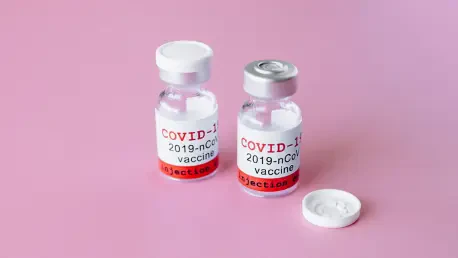The decision by Robert F. Kennedy Jr. to alter the United States’ COVID-19 vaccination guidelines, especially regarding pregnant women and healthy children, has stirred considerable controversy. Announced on May 27, this move bypassed the conventional protocol of the Centers for Disease Control and Prevention (CDC) and leaned on a document provided to Congress by the Department of Health and Human Services (HHS). The document’s use of questionable scientific studies and potential misinformation has led to significant debate among healthcare professionals, inciting concern about the impact on public health policy.
Concerns Over Scientific Validity
Questionable Studies and Their Interpretation
The document supporting Kennedy’s policy change drew criticism for relying on a mix of scientific studies, some unpublished and others still under peer review. Concerns were raised about the potential for these studies to be mischaracterized in the document, with critics labeling it as “willful medical disinformation.” Dr. Mark Turrentine highlighted his consternation at the submission of this document to Congress, which depends on such agencies for creating informed health policies. The document was perceived as lacking the reliable data necessary for sound decision-making in the legislative realm.
A major point of contention is the document’s claim about severe side effects of COVID-19 vaccines, such as myocarditis and pericarditis. These heart inflammation conditions were noted predominantly in certain demographics, for instance, young males following vaccination. Yet, the document bases this claim on a preprint study—indicating preliminary findings—cautioning against its use in clinical settings. Although previous data showed increased risks, recent studies that reflected adjusted vaccination protocols contradict the urgency suggested by the HHS memo, showing a decline in these risks.
Misrepresented Vaccine Safety During Pregnancy
Critics also noted inaccuracies within the document concerning COVID-19 vaccine safety for pregnant women. While the document referenced two studies to substantiate claims regarding increased risks, these studies actually underscored the vaccines’ safety and efficacy for pregnant populations. Moreover, assertions about heightened placental blood clotting post-vaccination could not be traced back to the cited studies, revealing a fundamental misstep in the HHS’s document accuracy. Turrentine regarded this oversight as an alarming deviation from the standards necessary for supplying legislators with scientifically credible information, showcasing a troubling misalignment with documented facts.
Implications for Policy and Public Perception
Challenges for Lawmakers
The potential for lawmakers to be misled by the HHS document is significant given their likely reliance on the presumed integrity and scientific rigor of the issuing agency’s documentation. This could result in flawed policy decisions, especially when legislative staffers may not have the time or specialized medical expertise required to critically evaluate complex references. Dr. Neil Silverman’s assessment underscored the risk of policy missteps, stressing the need for reliable and thoroughly vetted information. Inadequately informed staffers might face considerable challenges in distinguishing between substantiated scientific content and disinformation, underscoring the need for accurate, trustworthy source material.
The Role of Scientific Integrity
Dr. Sean O’Leary from the American Academy of Pediatrics expressed concern over RFK Jr.’s approach, which seemed to capitalize on a longstanding tactic of utilizing selective research or dubious science—an approach associated with Kennedy’s history as an anti-vaccine advocate. The flawed document represented a departure from previously upheld standards in health communication policy maintained even during tumultuous political climates, according to Democratic communicators like C.J. Young. This deviation signals a troubling shift in the political landscape of health communication, raising questions about the intent behind these practices.
Reactions from the Scientific Community
The Need for Reliable Health Policy
The flaws identified in the HHS memo underscore a broader concern with its reliance on dubious studies and its portrayal of scientific findings inaccurately. Within the growing landscape of public health misinformation, this episode emphasizes the need for diligent scrutiny and honesty in crafting policy communications. An underlying theme is the potential erosion of trust that can occur with such administrative missteps, amplifying tensions around vaccine safety perceptions and health guidelines among the public it serves.
Expert Consensus on Vaccine Safety
Robert F. Kennedy Jr.’s recent decision to modify the United States’ COVID-19 vaccination guidelines, particularly for pregnant women and healthy children, has sparked widespread controversy. Announced on May 27, this decision sidestepped the usual protocols established by the Centers for Disease Control and Prevention (CDC). Instead, it relied on a document provided to Congress by the Department of Health and Human Services (HHS). The document has been critiqued for utilizing questionable scientific studies and potentially spreading misinformation, causing significant debate among healthcare professionals. This has raised alarms about the potential impact on public health policies and the trustworthiness of public health guidance. The change has led to a polarized discussion about the balance between individual choice and community health safety. Many experts are worried about how such shifts can affect vaccination rates and overall public confidence in health recommendations, especially at a time when vaccine hesitancy is a critical issue.









